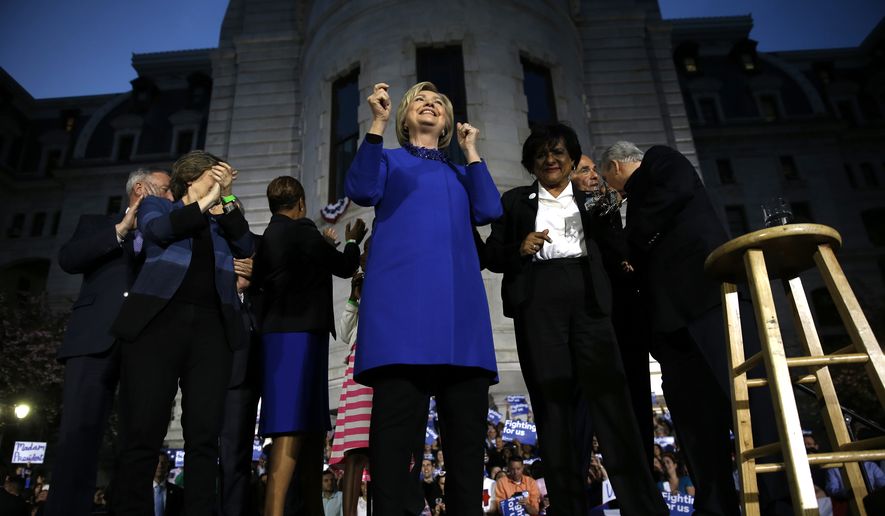Jessica Chasmar - The Washington Times
During an MSNBC town hall moderated by Rachel Maddow, Mrs. Clinton was asked by a young black lawyer how as president she planned to address systemic racism “that creates a glass ceiling for many 20-somethings.”
“We are still facing and struggling with systemic racism,” Mrs. Clinton responded. “It’s true in employment and promotion and other job opportunities. It’s true in education. It’s true in health care. It’s true in the criminal justice system. That’s why I talk about breaking down all the barriers. We have economic barriers, to be sure. But we have very entrenched barriers of discrimination.”
The former secretary of state then listed what she would do to combat the issue.
“No. 1, we have to talk about it more,” Mrs. Clinton said. “And as a white person, I have to talk about it more and say that we are not a postracial society. We still struggle with racism, and it is not only wrong, but it is holding us back. Because for every young woman like yourself — ready, willing, able to get to work, who is held back — that not only hurts you, it hurts us. We want as productive a society as possible.
“We have to use the bully pulpit, which I intend to use, to speak out about systemic racism every chance I get,” she added.
Mrs. Clinton said there is also a lot of sexism, “and people still are not being treated fairly based on gender, based on race.”
“So, I want to enforce the laws,” she said. “I want to make it clear that this is unacceptable. I want to speak out about it, and then I want to call people into the White House. Because one of the great powers of the president is to be the convener in chief, bring people in, and say, ‘You’ve got do more, and here are ideas that we have that have worked.’ And you have to try to implement those, and that’s exactly what I intend to do, because I don’t want to see any young person held back because of any of these barriers.”

No comments:
Post a Comment